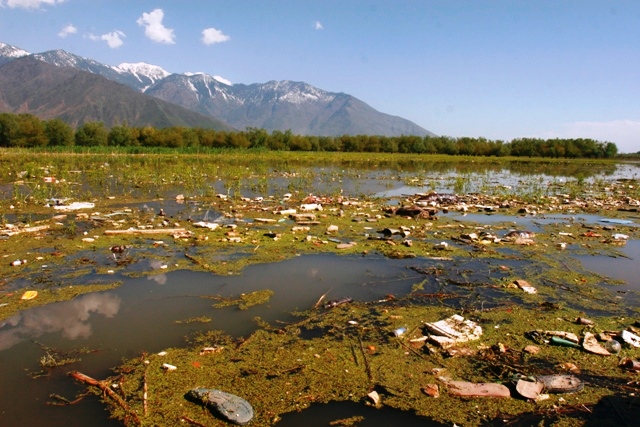
Once the pride of Kashmir, Dal Lake today is a shadow of its former self—its waters choked with weeds, its shores consumed by encroachments, and its future hanging in the balance. The lake, long romanticized in poetry and tourism brochures, is now a floating symbol of official apathy and systemic rot.
Despite hundreds of crores spent under various conservation projects, the lake continues to deteriorate. The Lakes Conservation and Management Authority (LCMA), formerly LAWDA, remains the agency tasked with its revival, but its track record is marred by inaction, inefficiency, and serious allegations of corruption.
Each new Chief Executive Officer arrives with promises of rejuvenation and leaves behind a more degraded lake, bolstered only by press releases and photo-ops.
Weeds now dominate large portions of the water body, turning the once-glimmering lake into a marshland. Tourists, instead of gliding over pristine waters, often find themselves navigating sludge.
Meanwhile, construction trucks roll freely through the lake’s so-called protected zones, and illegal structures continue to rise—often in broad daylight and under the very noses of enforcement staff.
What was supposed to be a conservation mission has, in some quarters, morphed into a racket. There are growing demands for a forensic audit of LCMA’s finances and a probe into the personal assets of its officers. Reports suggest that certain individuals have amassed considerable wealth during their tenures, allegedly at the cost of Dal Lake’s survival.
The failure is not limited to officials alone. A section of the local population, emboldened by lax enforcement, continues to dump waste, build illegally, and treat the lake as a personal backyard rather than a shared heritage. Instead of being stakeholders in preservation, some residents have become active participants in its degradation.
What Dal Lake faces is not a lack of resources, but a vacuum of accountability and political will. The need of the hour is not another seminar or cleanup drive, but a decisive intervention—transparent investigations, meaningful community engagement, and a leadership willing to confront the uncomfortable truths behind the lake’s collapse.
Dal Lake doesn’t just need cleaning. It needs justice. And it needs it now. [KNT]




